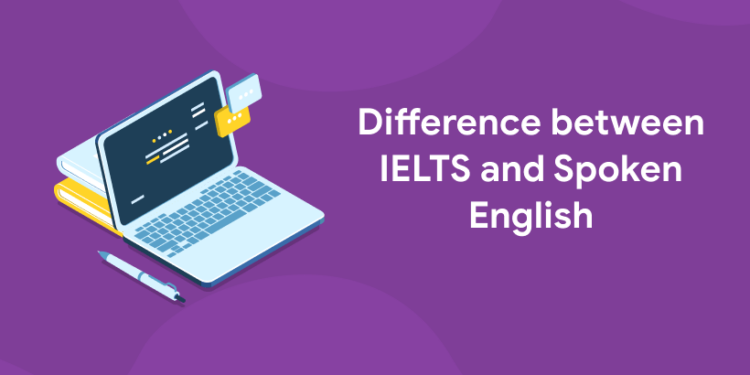Table of Contents
The International English Language Testing System (IELTS) is a system of exams designed to assist you in work, studying, or migrating to a country where English is spoken as a first language. Australia, Canada, New Zealand, the United Kingdom, and the United States are all included. Your ability to listen, read, write, and communicate in English will be assessed during the test. On a scale of 1 to 9, the IELTS exam is graded. IELTS is jointly owned by the British Council, IDP: IELTS Australia, and Cambridge Assessment English.
If you wish to work, live, or study in an English-speaking country, you must be able to demonstrate a high level of English language proficiency. English is the world’s third most spoken language, with 379 million speakers worldwide. The capacity to communicate in the native language of the country where you wish to work or study has many benefits. It’s also required for finding work and assimilating into the community. For anyone wishing to relocate to Australia, Canada, New Zealand, or the United Kingdom, IELTS is the most extensively utilised test. It is recognised by over 11,000 corporations, institutions, schools, and immigration authorities all around the world, including 3,400 in the United States. The IELTS score scale is as follows.
| Band score | Skill level |
| 9 | Expert user |
| 8 | Very good user |
| 7 | Good user |
| 6 | Competent user |
| 5 | Modest user |
| 4 | Limited user |
| 3 | Extremely limited user |
| 2 | Intermittent user |
| 1 | Non-user |
| 0 | Did not attempt the test |
Your knowledge and ability to communicate in English will improve as your IELTS score rises. The criterion for an IELTS score will differ depending on the immigration body, university, job, or institution. What you want to do in the country, whether it’s work or school, will influence the score you’ll need.
The International English Language Testing System (IELTS) was designed to provide a fair and consistent assessment of English language proficiency. The exam questions are written by language specialists from Australia, Canada, New Zealand, the United Kingdom, and the United States. The four components of the test are listening, reading, writing, and speaking. The IELTS exam content is based on real-life experiences. It is impartial and fair to everyone who takes the exam, regardless of their background.
Difference between IELTS and Spoken English
Many students wonder how the IELTS lesson differs from the General English sessions. Our IELTS preparation course is designed to help students prepare for the IELTS exam. It differs from normal English lessons in that it concentrates on Academic English, or English used at universities. The IELTS lesson isn’t only about improving your English skills; it’s also about teaching you how to earn the highest possible score on the exam. Students that need to earn a specific score, either for a career or to enter university, should take this course.
get online ielts training join now !!
1: Which of the sentences below is grammatically correct?
Spoken English Course for Guaranteed Confidence and Career Growth
Spoken English Course by Entri App: Enhance your communication skills, gain certification, and boost your career with confidence.
Join Now!Which is Better? IELTS or Spoken English
Both have a distinct function. IELTS lessons are held to assist students who want to apply for employment or universities in a foreign country by qualifying for the IELTS examinations. You should have a clear idea of what you want to accomplish. If your English language abilities are lacking, enrolling in a spoken English class that focuses on both grammar and pronunciation is recommended. Although spoken English can help you improve your command of the language, IELTS certification from the British Council can open doors to a variety of opportunities. If you desire to study abroad, you will have little trouble finding a way to do so if you have this certification. If not, you could start teaching in an IELTS centre to help people improve their English skills.
Does IELTS Improve English?
There isn’t much English learning in most IELTS prep courses; instead, the emphasis is on getting a high score on the test. IELTS isn’t only about speaking and fluency. In addition to speaking, it combines listening, reading, and writing. IELTS tutoring will improve your communication skills to a large extent, but it will not improve your pronunciation. It is better to attend spoken English and grammar classes before joining IELTS. You can use IELTS as a boost for the skills you already acquired as it gives you practise for your vocabulary, grammar, writing skills, reading and speaking skills.
SPEAK ENGLISH LIKE A NATIVE ! ENROLL NOW !!
Spoken English Course for Guaranteed Confidence and Career Growth
Spoken English Course by Entri App: Enhance your communication skills, gain certification, and boost your career with confidence.
Join Now!What is the Difference Between IELTS General and Academic?
The primary distinction between IELTS General and Academic is the objective of the test. The IELTS Academic exam is meant to assess candidates’ English language abilities in preparation for undergraduate or postgraduate study at a college or university, or for entry into a professional training institute. The IELTS general exam, on the other hand, assesses students’ non-academic English knowledge. In addition, individuals who seek to gain job experience or training in an English-speaking country frequently take the IELTS General exam. Most candidates who migrate for work in countries like Canada, Australia, the United Kingdom, and New Zealand are currently required to take the IELTS general training test, which includes everyday English language skills that they may need to adapt to their socio-cultural and workplace environments.
In terms of IELTS Writing and Reading examinations, the IELTS General test differs from the IELTS Academic test. Notices, ads, periodicals, and other items of general interest are included in the general exam. When it comes to the IELTS Academic test, covers more serious issues that are more closely related to higher education. As a result of this distinction, students frequently believe that the IELTS General examination is simpler than the IELTS Academic examination. In addition, the IELTS Academic examination can be taken for purposes such as professional registration. The IELTS Academic exam is used to determine if an applicant is ready to begin studying in English. As a result, this exam incorporates academic vocabulary. In addition, when it comes to Reading and Writing, the IELTS Academic exam contains themes that are more appropriate for academic or professional settings.
Some similarities between the General and Academic Exams are mentioned below:
- Both examinations assess candidates’ English language abilities in different situations when they want to relocate to English-speaking countries.
- Whether you take IELTS Academic or IELTS General, the listening and speaking sections are identical in both examinations.
- Candidates must take the listening, reading, and writing exams on the same day, with no breaks in between, whether they are taking IELTS Academic or IELTS General.
- The entire time for both IELTS General and IELTS Academic is 2 hours and 45 minutes.
- Both exams are accepted across the world.
How to Improve Your IELTS Score
- Each candidate is given a score based on a set of evaluation criteria by the examiner. Candidates must be conscious of these conditions in advance. This will provide a person with a complete understanding of the skills he or she will be required to display during the test.
- Proper grammar is necessary to make the phrase understandable to the examiner. Using good grammar will also help you improve your IELTS score. As a result, candidates should use proper grammar to boost their confidence and score.
- Students must develop a successful study strategy that is specific to their needs and interests. They will be able to complete a full IELTS preparation with the help of this technique.
- Every day, candidates must learn at least 10 new words. They should, however, not only understand but also understand the meaning of these phrases. Using the proper words to emphasise your abilities will impress the examiner and help you achieve a higher mark.
- The most important success slogan for IELTS applicants should be “practise, practise, practise.” To strengthen their English language skills, candidates should utilise the internet to get resources and practise answering practice questions.
Learn with practice tests
| IELTS reading practice test | Practice Now |
| IELTS listening practice test | Practice Now |
| IELTS writing practice test | Practice Now |
| IELTS speaking practice test | Practice Now |
IELTS Course Duration
Depending on the learner, the length of time required for progress varies. It is entirely dependent on the student’s English proficiency and the score required for the job or university to which you aspire to get into. Students and professionals both take the IELTS test. Those who are fluent in English may quickly prepare themselves with 15 days of regular courses, whilst others may need two months or more. As a result, the length of IELTS preparation is solely determined by the student’s English proficiency. A Studio student’s IELTS score can be improved by 0.5 in 6 weeks on average. You will need to study for another 6 weeks to perfect the exam skills.
IELTS is widely accepted by educational institutions, businesses, and other organisations in English-speaking countries since it is recognised as the most dependable and fair test. Because of its trustworthiness, the IELTS test is more widely accepted for migration purposes than any other test. The IELTS exam is not difficult; in fact, the difficulty level may be decreased if you prepare effectively and have a thorough understanding of the course and test. Your target score is well within reach; all you need to do now is devise strategies to help you achieve a good IELTS score.









